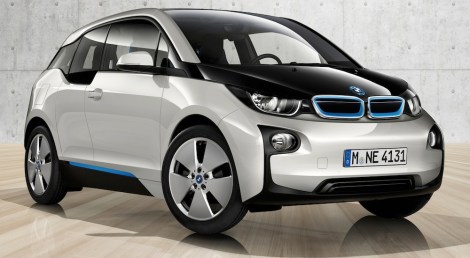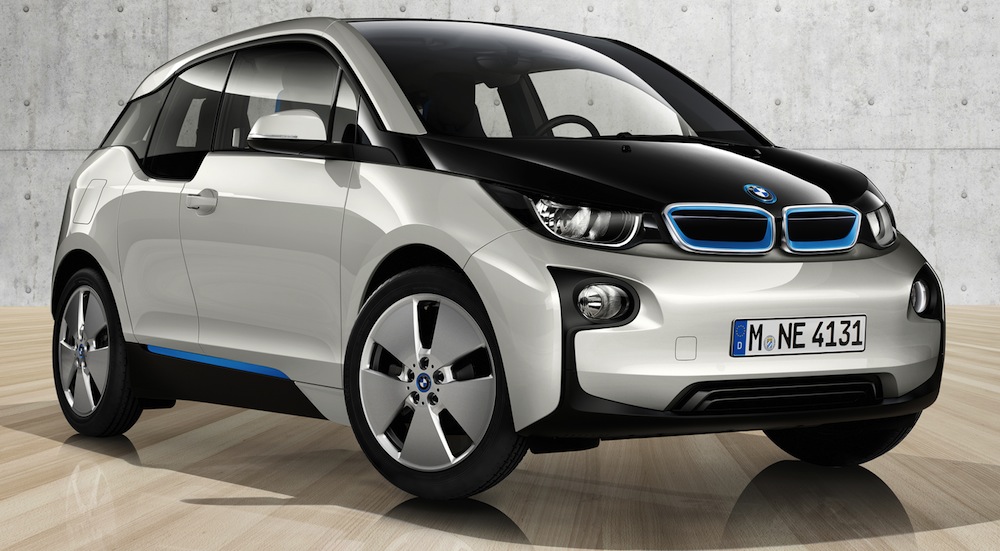The BMW i3 electric sedan, officially unveiled this week, is getting rave reviews.
The car sells for as little as $41,350 — not bad for a Bimmer, and that’s before the $7,500 federal EV rebate. Those with range anxiety can drop a few grand more for a small backup gas-burning engine (or just take advantage of BMW’s nifty SUV-sharing offer).

BMWBMW i3
Here’s some of what Wired has to say about the car, which weighs in at 2,700 pounds:
The reason the i3 is so svelte compared to other EVs is two-fold. First, it was designed to be an electric car from the beginning. Unlike BMW’s previous EV efforts — the Mini E (3,300 pounds, the same as a Nissan Leaf) and the BMW ActiveE (4,000 pounds) — they shaped the chassis and body around the motor and batteries to create a compact package with a low center of gravity. And then they got serious about weight savings.
For the first time in a mass-market car, the structure that makes up the i3′s passenger compartment is comprised entirely of carbon fiber reinforced plastic. That means it’s ultra-safe and as strong as metal, while being 50 percent lighter than steel and 30 percent lighter than aluminum. With less weight to move around, efficiency goes through the roof. And that allowed BMW to use a smaller, 450-pound battery enclosed in an aluminum shell to remove even more weight, boosting driving range and reducing charge times. (By comparison, the Nissan Leaf uses a 600-pound battery with only two more kWh of juice, and takes longer to charge because of its puny 3.3 kW on-board charger.)
The Christian Science Monitor touts the car as well-suited for city life:
“[BMW] is taking a very holistic approach to the electric vehicle and the idea of future transportation,” John O’Dell, senior editor for fuel efficiency and green cars at Edmunds, said in a telephone interview. “They see the world becoming more urbanized, with greater parts of the population living in urban areas, and they see the electrified car as making sense in that increasingly urbanized world.”
The introduction of the i3 means another contender in what is currently a three-car race for electric car dominance. Tesla Motors has had a strong run recently, nabbing a handful of major accolades and paying back a half-billion-dollar federal loan years ahead of schedule. Nissan has enjoyed a surge in sales after slashing the price of its Nissan Leaf in January.
The i3 will hit showrooms in the U.S. in spring 2014.




